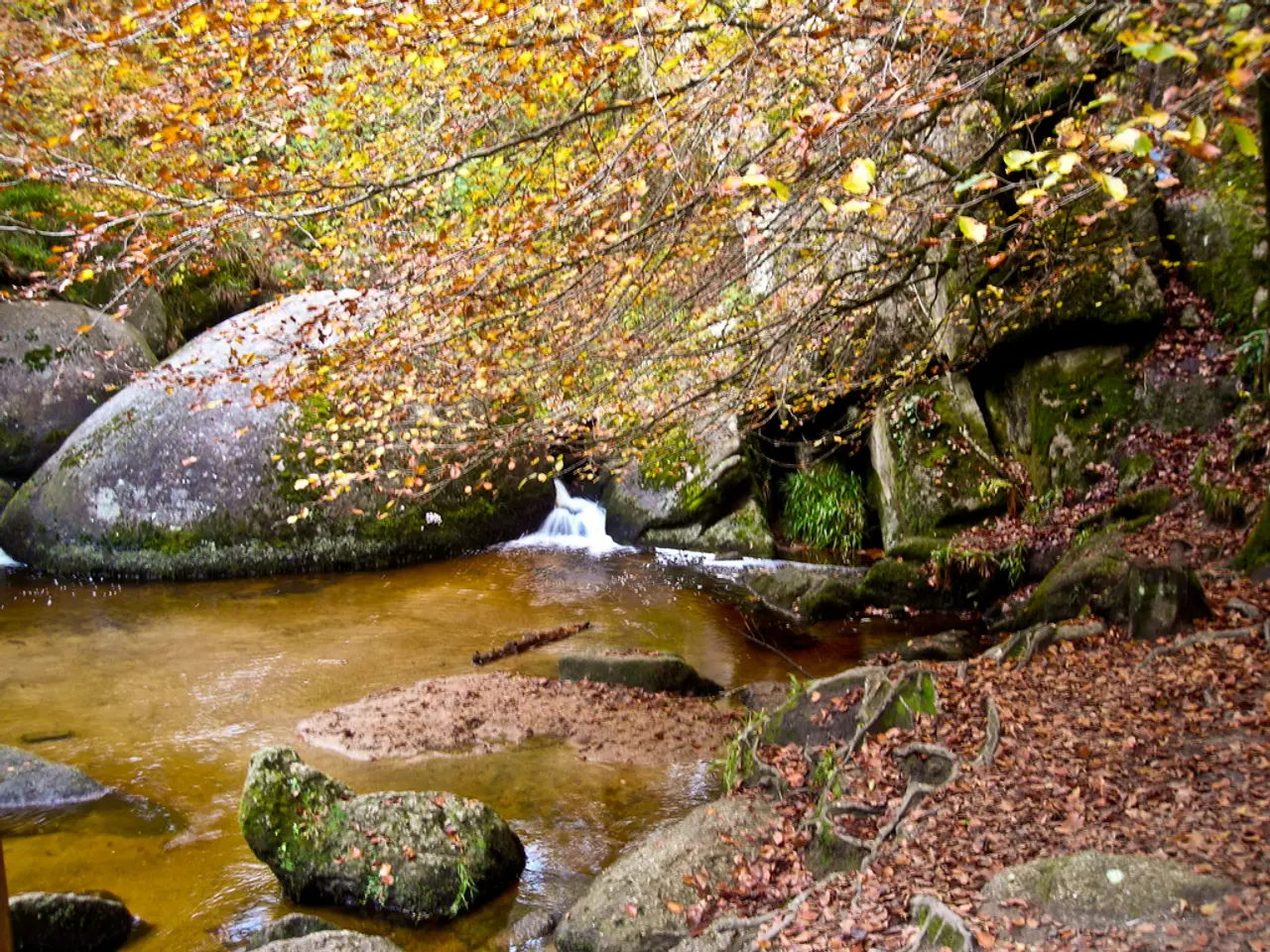People Taking a Stand Against Quebec's Policies
In the picturesque region of Quebec, a contentious issue surrounding the logging of Crystal Lake has sparked heated debates. The pristine lake, known for its exceptional beauty and unique ecological significance, is under threat from deforestation, road construction, and vacation development.
According to a 2013 assessment by the Ministry's own experts, Crystal Lake and its watershed were classified as a "site of faunal interest." This designation underscores the lake's importance as a habitat for various species and the potential risks posed by large-scale development and logging activities.
Joanie Ducharme, president of the zec des Nymphes, voices concerns about the future of Crystal Lake's exceptional quality beach post-forest cuts. With the lake being the only one in the area that attracts a significant number of tourists, she wonders who will come to enjoy its shores once the forest is gone.
Marc Demers, a long-time resident of Crystal Lake, has alerted his neighbours about the impending cuts, expressing fears for the lake's fragility. His concerns echo those of Jasmine Gagnon, a member of the lake defense committee, who fears that if the forest is cut, the first storm will wash away all the dried moss and sediments into the lake, causing irreversible damage.
The forestry industry plays a significant role in the local economy, employing nearly 100 residents out of 1,317. However, the temporary closure of the St-Michel Sawmill has left 250 workers unemployed, highlighting the delicate balance between economic interests and environmental preservation.
Despite these concerns, the Ministry of Natural Resources and Forests (MRNF) still plans to authorise cuts for the winter of 2026-2027. The MRNF's forest management strategy is based on the maturity of the woods, the history of interventions, the needs of the industry, and the availability of territories.
The territories targeted by protected area projects can be harvested until they officially obtain the status of protected area, according to the MRNF. This policy has been met with criticism, as it allows for logging activities to proceed while the potential long-term impacts on the lake and its ecosystem remain uncertain.
The dispute over Crystal Lake mirrors similar conflicts in other regions, such as British Columbia, Canada, where Indigenous groups and local communities have resisted logging in old-growth forests. These struggles often involve assertions of land rights, demands for participation in forest governance, and legal actions to enforce Indigenous consent and improve forest conservation standards.
The impacts of such conflicts on local communities and tourism can be profound. They may lead to community mobilization, legal action, and advocacy, as well as changes in tourism appeal. While logging controversies can reduce the attractiveness of natural areas for ecotourism and cultural tourism, protests and media attention can also raise awareness and attract sympathetic visitors. Ultimately, conservation efforts can promote sustainable tourism and help preserve the beauty of these pristine forest areas for future generations.
In the case of Crystal Lake, the Auberge le Cabanon's owner, Michel Mills, hopes that the Savé Forest protected area project will serve as a lesson to prevent similar situations in other areas. As the lake renews very slowly due to being a headwater lake, fed by mountain sources and rainwater, and hyper oligotrophic, meaning it is exceptionally poor in nutrients, the stakes are high for the lake's long-term health and the future of the local economy.
References:
- Old-Growth Forest Conflicts in Canada: A Comparative Analysis of Indigenous and Local Community Struggles
- The issue of logging Crystal Lake in Quebec has drawn parallels with old-growth forest conflicts in regions like British Columbia, highlighting broader debates around environmental science and policy-and-legislation.
- The pristine beauty of Crystal Lake makes it a significant site for various species, a subject of environmental-science research, and an eyecatching attraction for tourists in the general-news.
- The logging controversy has sparked concerns within the local business community, with some home-and-garden owners fearing its impact on their livelihood and the tourist industry.
- The energy dynamics at play in the region are complex, with the forestry industry offering employment yet leaving 250 workers unemployed amidst calls for environmental preservation.
- Politics and climate-change activism have intensified around Crystal Lake, with discussion focusing on policy-and-legislation efforts needed to ensure the protection of the lake and create a sustainable future for the community.
- The future of Clear Lake's surroundings and its tourism appeal remains uncertain, with advocates pressuring the Ministry of Natural Resources and Forests to reconsider its plans for logging and prioritize environmental concerns over industry interests.




